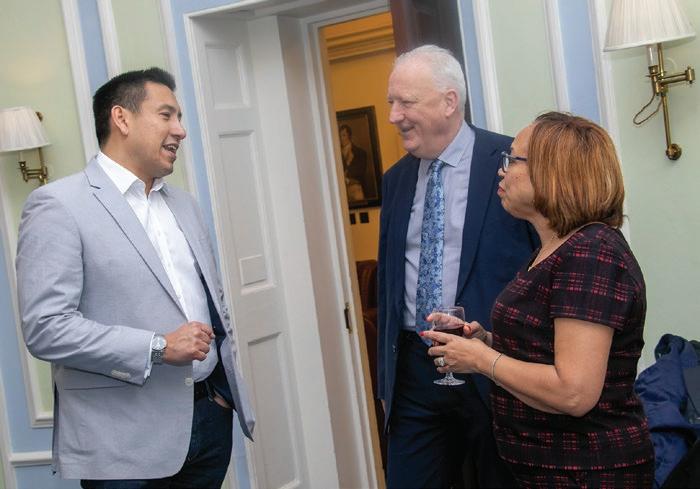
3 minute read
Switching channel S
Changes in airline content distribution and the ramifications for TMCs and their corporate clients was the subject of an honest and open discussion at a Business Travel Forum in London in April.

The forum, entitled The NDC Conundrum, was organised by The Business Travel Magazine and was sponsored by travel technology specialists TripStax and Kyte.
The event was designed to throw light on why recent NDC developments have been embraced by some sections of the industry but met with resistance by others.
While some TMCs have been quick to adapt their technology and business models to offer NDC content to their clients, others have publicly admitted to a ‘sit and wait’ approach, claiming the tech solutions aren’t ready and that service levels aren't in place.
Guests at the lunch agreed that, in general, the larger, legacy players have been slower to support the new form of distribution because they are reliant on commercial agreements with the GDS and would prefer to wait until they can offer NDC content through their GDS partners. Meanwhile, the smaller, more agile TMCs have been more likely to switch their business models to take control of the content they provide to their clients.
In a recent survey of 100 buyers by ITM, 60% said their TMC was not adapting to changes in the distribution landscape.
Buyers at the Lunch Forum complained of a lack of transparency and information from their TMCs and airline partners and called for an independent body to dispel some of the myths and misunderstandings surrounding NDC.
Non-parity
The forum discussed some of the pain points from a corporate's perspective, which include complaints from travellers and bookers that they are not always getting access to fares they can see on an airline’s website or through other channels. In some cases, the differences in price amounts to a few thousand pounds.


Concerns were raised by buyers about travellers booking outside of policy or losing trust in the value of travel programmes.

One TMC accused airlines of ‘distribution double-dipping’, similar to retail businesses which encourage customers to come into their stores but then don’t have the required product in stock and tell customers to shop with them online.
Other TMCs argued that the fares being withheld by the likes of American Airlines and the other airlines pushing the NDC agenda aren’t generally the flexible fares their clients want to book anyway.
Service levels
Servicing issues for NDC bookings were also highlighted as a potential problem, with airlines not always having the sufficent level of resources to deal with last-minute changes to bookings.
TMCs said if travellers face disruption from a cancellation or have to change a trip at the last minute, they expect a TMC to take care of the situation. But this can more difficult when that booking is direct with the airline and is not 'owned' by an agent through their IATA, with airlines not always providing adequate servicing.
Emerging technology
The forum participants agreed that the transition to NDC is accelerating, particularly with the latest move from American Airlines, which has removed 40% of its fares from the GDS. Some pointed out that Air France/ KLM and Air Canada are also now doubling down on their NDC strategies and said other airlines will follow suit.


With this in mind, the group was asked to consider whether a single, central point of airline distribution will remain or if there will be multi-channels in future, supported by agile API technology that buyers can plug into or opt out of, taking control of the content their travellers have access to.

Drawing comparisons with TV streaming companies, such as Sky and Netflix, buyers said travellers and bookers should be given access to a full range of content with a userfriendly interface, similar to what they've become accustomed to using in their everyday lives.

With the technology already available, the group asked why there is still reluctance in some corners of the sector to make the transition. Some questioned why the travel industry is risk averse and is often slow at adapting to change, demonstrated by the roll-out of e-ticketing which took 13 years. All agreed that the ultimate goal for TMCs must be to find ways to provide what their corporate clients want and need rather than being driven by historical money-flows and old ways of doing things.

With new aggregators or 'mini-GDSs' already emerging, one buyer called on those TMCs who are not yet NDC ready, or who are deliberately dragging their heels, to "stop being scared and step up" or risk their clients looking elsewhere.











